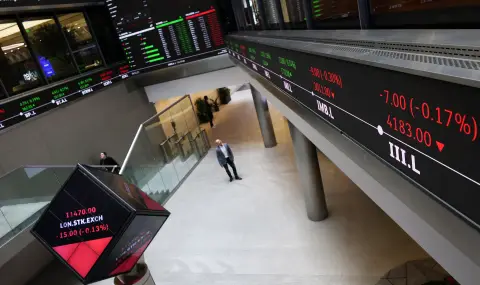The risks of the global economy falling into recession this year are high, according to a "Reuters" poll of economists. According to them, the tariffs imposed by US President Donald Trump have seriously damaged business sentiment, News.bg reports.
Only three months ago, the same group of economists, covering nearly 50 economies, expected stable and strong global growth. But now, Trump's push to reshape global trade by imposing tariffs on U.S. imports has sent financial markets into a tailspin, wiping out trillions of dollars in stock market value and shaking confidence in the dollar as a safe haven.
While the most severe tariffs have been temporarily suspended, overall tariffs of 10% and 145% remain on China, the U.S.'s largest trading partner.
"Companies have a hard time planning even in the short term. Try to forecast your business one or five years out - it's almost impossible," said James Rossiter, head of global macro strategy at TD Securities.
The heightened uncertainty and tariffs have forced many global companies to cut or withdraw their revenue forecasts. In a Reuters survey, 92% of more than 300 economists surveyed said tariffs are having a negative impact on business sentiment.
Three-quarters of economists lowered their forecast for global growth in 2025, with the median value falling to 2.7% from 3% in January. The International Monetary Fund had forecast growth of 2.8%.
On average, forecasts for 28 of the 48 economies surveyed were cut. China and Russia are among the few countries expected to grow, at 4.5% and 1.7% respectively. However, forecasts for Mexico and Canada have been sharply lowered.
Expectations for 2026 remain pessimistic, suggesting that the effects of Trump's trade policies will be felt for a long time.
When asked about the risk of a global recession this year, 60% of respondents said it was high or very high. Only 40% said it was low.
“This is a very difficult environment to be optimistic about growth“, said Timothy Graff of State Street. According to him, even the immediate removal of tariffs would not fully restore confidence in the US economy.
Economists also warn that tariffs are creating inflationary pressures that are undermining central banks' efforts to stabilize prices. More than 65% of central banks surveyed are likely to miss their inflation targets this year.
With the increased risk of stagflation - a period of low growth, high inflation and rising unemployment - the outlook for the global economy remains worrisome.
